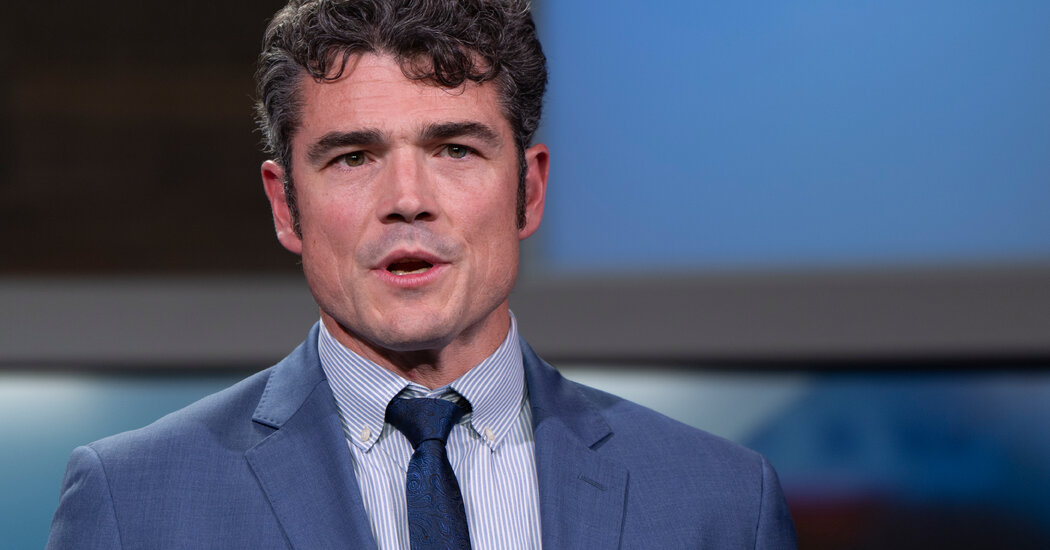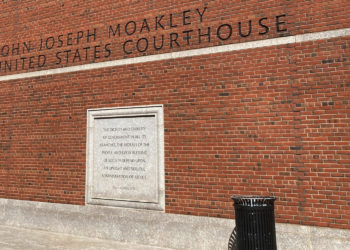The head of the National Counterterrorism Center examined F.B.I. files in the last several weeks to investigate whether the man charged with assassinating Charlie Kirk had support from someone else, a foreign power or another entity, according to multiple people with knowledge of the matter.
The inquiry by Joe Kent, the director of the counterterrorism center, alarmed Kash Patel, the director of the F.B.I. Mr. Patel and other senior officials believed Mr. Kent was overstepping, treading on F.B.I. responsibilities and potentially interfering with the investigation and the prosecution of the suspect, Tyler Robinson.
But supporters of Mr. Kent say he was doing his job, running down leads and making sure no foreign or domestic groups were linked to Mr. Kirk’s death.
Mr. Robinson, 22, is accused of killing Mr. Kirk last month as the conservative activist made an appearance at a college campus in Utah, one of many where he would, one student at a time, debate contentious topics. State prosecutors in Utah have charged Mr. Robinson with seven counts, including felony aggravated murder.
The Senate confirmed Mr. Kent as director of the counterterrorism center in July. He is one of the closest advisers to Tulsi Gabbard, the director of national intelligence, and shares her
focus on traditional terrorism groups as well as drug cartels, which he argues are a grave threat to the United States.
Mr. Patel was troubled that Mr. Kent had gone through F.B.I. material related to the case, according to the people knowledgeable on the matter. Mr. Kent’s efforts were a topic at a White House meeting that included Mr. Patel, Mr. Kent and his direct superior, Ms. Gabbard. Top Justice Department officials, Vice President JD Vance and the White House chief of staff, Susie Wiles, were also there, according to several of the people who spoke to The New York Times about the matter.
The people interviewed by The Times were granted anonymity to speak frankly about internal dynamics in the Trump administration.
The F.B.I. and the Justice Department generally keep tight control over evidence in criminal cases, particularly when they are preparing for a trial, in which government documents may have to be turned over to the defense and could be used to poke holes in the prosecution’s case.
While Mr. Robinson is currently facing only state charges, some administration officials were concerned that Mr. Kent’s efforts could provide fodder to defense lawyers, who could use the notion that more than one person was involved in Mr. Kirk’s killing to raise reasonable doubt in the minds of jurors, said those aware of the matter.
Since Mr. Kirk’s death, some White House officials have pressed for sweeping federal investigations of liberal groups and donors, and some of the president’s allies outside the administration are convinced that the killing is part of a broader plot, despite a lack of evidence that has been presented to support that. Officials involved in the arrest have said they believe Mr. Robinson acted alone.
Mr. Kent told administration officials that a lower-level F.B.I. official had granted him access to the agency’s files, which Mr. Patel was said not to be aware of, according to some of the people interviewed by The Times.
In response to questions from The Times, Mr. Patel and Ms. Gabbard released a joint statement that did not address the debate over Mr. Kent’s inquiry and sought to portray a unified front. “The F.B.I. and intelligence community under the direction of President Trump will leave no stone unturned in the investigation of the assassination of our friend, Charlie Kirk,” they said.
But multiple people said tensions over Mr. Kent’s work had persisted for some time and were part of a broader set of issues between Ms. Gabbard’s office and other administration agencies. The meeting that Mr. Kent attended at the White House was one of two intended to ameliorate tensions between the F.B.I. and Ms. Gabbard’s office, the people briefed on the matter said. The earlier one, which focused on multiple issues including the killing of Mr. Kirk, was so tense that little was accomplished, they added.
In the hours after Mr. Kirk’s killing, before Mr. Robinson was identified as the suspect, officials across American intelligence agencies were investigating whether any foreign government was involved in a plot to kill Mr. Kirk.
Some officials inside the government raised questions about the assassin’s abilities and training after security footage was released of him jumping from a high ledge. Early in the investigation, evidence was collected that contained words often associated with antifascist writing, namely the inscriptions on bullets found in the rifle that killed Mr. Kirk.
In the charging document, prosecutors included a text message from Mr. Robinson that claimed the inscriptions were “mostly a big” internet meme.
The counterterrorism center gathered material from intelligence agencies about potential foreign ties to Mr. Robinson and has also looked at foreign funding of people who identify with the far-left movement known as antifa.
Mr. Trump has said Mr. Robinson was radicalized by the left, though the president has not directly tied him to antifa. After Mr. Kirk’s killing, Mr. Trump said he was designating antifa as a terrorist organization.
Antifa is a term for a sometimes violent protest culture of far-left activists, but is not an actual organization. Several critics have questioned what legal criteria the president is using to make such a designation about a diffuse movement with no clear leader.
Under Mr. Kent, the National Counterterrorism Center has taken a higher profile than in years past, issuing warnings about potential terrorist attacks and highlighting work to aid Mexico in hunting leaders of drug cartels.
But some critics of Mr. Kent’s work say he is pushing his center into areas that should be left to the F.B.I. or the C.I.A.
Julian E. Barnes covers the U.S. intelligence agencies and international security matters for The Times. He has written about security issues for more than two decades.
Maggie Haberman is a White House correspondent for The Times, reporting on President Trump.
Devlin Barrett covers the Justice Department and the F.B.I. for The Times.
The post Official’s Access to F.B.I. Files in Charlie Kirk Case Drew Pushback appeared first on New York Times.




